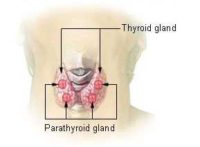MedicalResearch.com Interview with:
 Marianthi
Marianthi-
Anna Kioumourtzoglou ScD
Assistant Professor
Environmental Health Sciences
Mailman School of Public Health
Columbia University
MedicalResearch.com: What is the background for this study?
Response: The prevalence of neurodevelopmental disorders, like attention deficit/hyperactivity disorder (ADHD) has been increasing. One of the hypothesized risk factors for increased risk for neurodevelopmental disorders is a class of chemicals known as endocrine disrupting chemicals (EDCs). These chemicals are known to interfere with the endocrine system, i.e. the system that uses hormones to control and coordinate metabolism, reproduction and development. Several high production volume chemicals, ubiquitously present in commercial products, are known or suspected endocrine disruptors. Because of their widespread use in consumer products, the population-wide exposure to known and suspected EDCs is very high.
Recently, there has been increased attention in the potential effects of EDCs on neurodevelopment that span multiple generations. Animal studies have provided evidence that exposure to EDCs, such as phthalates and bisphenol A (BPA), alter the behavior and social interactions in mice in three to five generations after exposure. However, evidence of such multi-generational impacts of EDC exposure on neurodevelopment in humans is unavailable, likely because of the lack of detailed information on exposures and outcomes across generations.
For this study we leveraged information from a nationwide cohort, the Nurses’ Health Study II (NHSII), to investigate the potential link between exposure to diethylstilbestrol (DES) and third generation ADHD, i.e. ADHD among the grandchildren of the women who used DES while pregnant. DES is a very potent endocrine disruptor that was prescribed between 1938 and 1971 to pregnant women thought to prevent pregnancy complications. In the United States, between 5 and 10 million women are estimated to have used DES, although the exact number is not known. DES was banned in 1971, when was linked to vaginal adenocarcinomas (a rare cancer of the reproductive system) in the daughters of the women who had used it during pregnancy. Since then, DES has been also linked to multiple other reproductive outcomes in DES daughters, as well as with some reproductive outcomes in the grandchildren of the women who used it, such as hypospadias and delated menstrual regularization. However, to our knowledge, no study to date has evaluated the association between DES, or any other EDC, and multigenerational neurodevelopment.
(more…)





 Ali Khashan, PhD
Senior Lecturer in Epidemiology
School of Public Health & INFANT Centre
University College Cork
Cork, Ireland
MedicalResearch.com: What is the background for this study? What are the main findings?
Response: There is some evidence to suggest an increased likelihood of neurodevelopmental disorders in relation to hypertensive disorders in pregnancy, however consensus is lacking. Considering hypertensive disorders in pregnancy are among the most common prenatal complication, we decided to synthesise the published literature on this topic by conducting a comprehensive systematic review and meta-analysis.
Our main findings suggest that hypertensive disorders in pregnancy are associated with about 30% increase in the likelihood of autism spectrum disorders (ASD) and ADHD in the offspring, compared to offspring not exposed to hypertensive disorders in pregnancy.
Ali Khashan, PhD
Senior Lecturer in Epidemiology
School of Public Health & INFANT Centre
University College Cork
Cork, Ireland
MedicalResearch.com: What is the background for this study? What are the main findings?
Response: There is some evidence to suggest an increased likelihood of neurodevelopmental disorders in relation to hypertensive disorders in pregnancy, however consensus is lacking. Considering hypertensive disorders in pregnancy are among the most common prenatal complication, we decided to synthesise the published literature on this topic by conducting a comprehensive systematic review and meta-analysis.
Our main findings suggest that hypertensive disorders in pregnancy are associated with about 30% increase in the likelihood of autism spectrum disorders (ASD) and ADHD in the offspring, compared to offspring not exposed to hypertensive disorders in pregnancy. 





